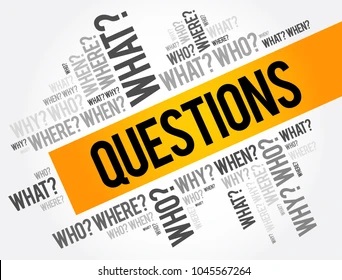
Answering basic questions
The ability to answer questions appropriately requires a child to understand the questions in the first place. Some children find it difficult to answer certain questions. This may often indicate a difficulty with language.
One of the first things to check for if your child is not answering questions appropriately is whether they hear the words clearly. When a child has hearing difficulties, they may have trouble answering questions appropriately.
Advertisement
A child who is not answering a question appropriately may also have specific difficulty with understanding language and may be lagging behind what may be expected of at his age.
Milestones
A child’s ability to answer questions develops gradually. There are different types of questions. Although language milestones for Ghanaian children specifically is unknown, there are general milestones that can help caregivers and speech and language therapists identify when there is a difficulty.
• Children are usually able to answer ‘what’, ‘where’ and ‘yes or no’ questions by 30 months.
• Children are usually able to answer the basic questions such as “What is your name?”, “How old are you?”, “Are you a girl or a boy?” by age three.
Signs
Children who have difficulties answering questions may do one or more of the following:
• Give an inappropriate answer to the question, such as saying ‘Yes’ when the right answer is ‘No’. For example, if you ask them: “Are you eating?”, they respond saying ‘Yes’ when they are playing.
• Responding with an answer that is completely off the topic. For example, when you ask them “What are you eating?” and they respond with “Ball”.
• Not responding to questions.
• Repeating the whole question or words in the question.
Help
• ‘What is this?’ — This question often requires responses about naming objects. If your child does not have a lot of vocabulary, they may not respond appropriately. To teach your child to answer this question appropriately, it is helpful to ask them about objects they may already know. For example, when they know what a dog is, point to it and ask: “What is this?”. You can do the same when going through a picture book or when they are playing with their familiar toys.
• Offering choices — Younger children learn to answer basic questions by making choices. Offer your child choices often. For example, “Do you want orange or banana?”, “Do you want the car or the ball?”, “Should we walk or run?”, “Is the dog sleepy or hungry?”. Wait for your child to respond to your question. However, if they are not yet using words, wait for them to point or grab the item and then you can name it. When offering objects, it is helpful to offer both a desired and undesired item to your child. This helps to know if the child truly understands the question and is not just selecting an item. If you offer them the one they choose and they seem angry or frustrated, it may be an indication that they didn’t understand the question. Offer them the items again and see if this time they will make their preferred choice.
• Where/Who questions — Ask basic ‘where’ or ‘who’ questions where the child can say, point or lead you to. For example, “Where is the car?”, “Where is daddy?”, “Who is this?”.
You can do so with picture books or a family album. Model the correct answer for your child if they don’t get it right or answer non-verbally by pointing or looking in the direction of the answer.
Use these strategies regularly to teach your child to answer basic questions. As they grow much older, they will begin to answer higher level questions such as ‘When’, ‘Why’, ‘How’.
The writer is Speech & Language Therapist/Clinical Tutor, University of Ghana. E-mail: [email protected]



